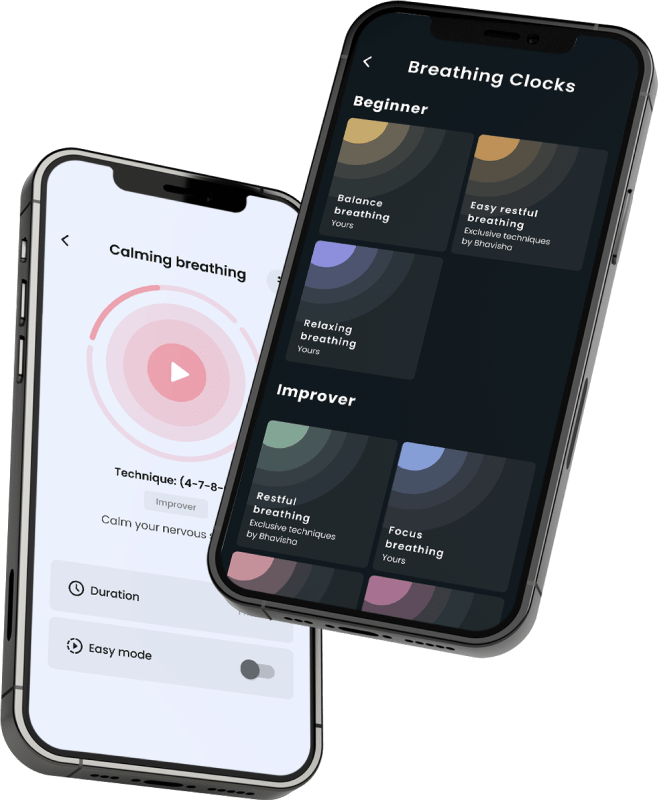How to Deal with Stress at Work

It's no secret how stressful work can be. While for may it can be an enjoyable experience, for others it can, from time to time, be an absolute nightmare.
In the UK, most of us find ourselves working longer hours and see our employees more than we do our friends and family members more than ever before.
It doesn't matter if the job is high-pressured or not, we can all find ourselves feeling completely overwhelmed by the pressures of our work environment all too often. We get anxious about the amount of work we are faced with, worry about whether we will get it done on time and in some cases we feel stressed out by the behaviour and attitudes of our work colleagues and the intense and occasionally unrealistic pressure our bosses put on us.
These stress factors can have a shocking effect on our mental health and the work place environment. In 2019-2020, 828,000 people in the UK said they were suffering from work-related stress, anxiety or depression resulting in 17.9 million lost work days. In total, there were 591,000 GP visits in the last year to treat stress, anxiety, and depression, which accounts for a whopping one in five GP visits. According to the Health and Safety Executive Government agency, stress is “the adverse reaction people have to excessive pressures and demands placed on them.”
If you're looking for ways to cope with stress at work, we'll aim to give you some tips on how to handle these tricky feelings and how to get back your sense of control.
How do I know if I'm stressed at work?
There are a number of ways you can recognise these signs before it causes you more serious problems and affects your physical and mental well being and ultimately your home and personal life.
These include:
- Finding it hard to focus - You may have a lot of work to do but if you are worrying about it so much you may find it hard to get started. As a result, you will fall behind which will then make you feel more anxious and unsettled in the work place. The more you worry about the situation, the more uneasy and anxious you will become, which will subsequently lead to your mental health becoming compromised.
- Lack of sleep - even though your long, hard day at work will leave you feeling exhausted and drained, your mind is often so preoccupied with your workload and the stresses involved that you find it hard to shut off and have settled sleep. As a result, you may find yourself lying in bed at night, staring at the ceiling thinking about all the issues at work that are concerning you. This could lead to experiencing broken sleep patterns which will only add to your daily job stress.
- You can't switch off - When we get home after a hard day at work, we should really be able to put our day behind us. But if we are feeling overwhelmed and under pressure or working extra hours then it is harder for us to shut the door completely on what we do. This results in us constantly thinking about what has already been done and thinking about what still needs to be achieved the next day, which ultimately makes us less fun to be around. We should all be able to switch off and enjoy time away from the office environment, but with tight deadlines, demanding bosses and so much to do it, it's very hard to achieve. Home should be a place to unwind and reduce stress levels. Instead, the day's issues can leave us with serious negative effects that can cause problems at home.
What are the main causes of work stress?
So what stresses you out most at work? Each of us is different so we may find various things within the office environment troublesome.
Here are some reasons that that people find themselves fretting about:
- Volume of work - Sometimes it feels like there is just not enough time in the day to achieve the tasks that you have been set. This might be because of the volume of work that you are faced with, or perhaps you get delayed because there are so many distractions around you in the office. Or maybe the progress of your work is affected by your colleagues' work ethic or because you're having to wait for decisions to be made.
- Distractions - Working in an office environment can be a very tough place to be. With so many people around you chatting and asking you for assistance, it's so easy to have your consistent work flow compromised, ultimately putting you behind schedule.
- Demanding bosses - Sometimes we can feel at our most stressed when the people we work for are strict and demanding and lacking in awareness of what we actually have on our plate. The constant call for things to be done immediately can be an incredibly unpleasant form of intense stress. When ordered to have results in a short amount of time, many will feel their heart beat faster as a genuine sense of panic sets in. This then leads to us finding it hard to think straight as we worry about getting the work done and ensuring our superiors are happy.
- Juggling work - These days, most people in the workplace find themselves having to work on two or three different aspects of work at a time. This can lead many experiencing feelings of anxiety, panic and stress especially if all aspects of their work are expected at the same time.
- Difficult workmates - Many of us are lucky to work alongside people who have become friends. But this is not always the case. Occasionally we find ourselves working with people who make us feel uncomfortable, which then leads us to feel stressed about going into the work environment.
- Unrealistic expectations - When a boss demands that certain things are done in an unrealistic time, stress can grip our body. Feeling unable to tell your superior that the deadline given is near to impossible you feel a pressure to succeed, which raises stress levels.
- Disorganisation - If you are someone who is organised and efficient, it can be difficult to work with others who appear to be the total opposite. If a colleague doesn't have grasp on a situation or they take longer to deal with a work project, you may feel your stress levels rise as it also sets you back on your well-organised schedule.
How can I avoid work related stress?
There are a few things we can do to ensure we get the best out of the work situation and to generally manages stress levels and stressful situations at work.
- Volume of work - If you have a lot on, sit down and write out all the tasks you must complete. Decide which of them is a priority. Once each task is done, tick it off. This way, the amount of work feels more manageable and you will find that your stress levels will be greatly reduced and your negative thoughts will be a thing of the past.
- Distractions - If the hum of chat in the office is distracting, either ask those around you to be quieter, or if try to move to another part of the office away from people. Alternatively you could wear earphones and listen to some calming music such as that found in Yours app's soothing music library.
- Demanding bosses - If you feel you have been tasked with too many jobs and need extra hours in your day, don't walk away and feel overwhelmed. Instead, talk to your boss and explain that you feel there is a lot on. Ask them what is the most important task they want completed first and suggest a realistic completion date to make it easier on yourself.
- Difficult workmates - If someone makes you feel uncomfortable at work, either speak to them about the issue or if it is something that they refuse to do, then speak to someone in charge who can help smooth the choppy waters.
- Disorganisation - If you are working with someone who is not organised, try giving them some guidance and a plan. Suggest a deadline and explain to them certain tasks needs to be completed before a certain time so that the work flow is not delayed in anyway.
What to do if you are suffering from stress at work?
Why not try these stress-busting exercises next time you feel overwhelmed at work?
- Be active - Exercise won't make your stress disappear, but it is great for emotional health and, of course, physical health. It'll reduce some of the emotional intensity that you're feeling, clearing your thoughts and letting you deal with your problems more calmly. Participating in the yoga videos on Yours app is a brilliant way to clear your mind and stretch out all your woes.
- Take control - It may seem impossible but there is a solution for every problem. Don't let anything get the better of you. Learn how to manage your time.
- Connect with people - Don't feel alone. Speak to people and share your burdens, they may be able to help you see a problem in a different way.
- Have some 'me time' - No matter how busy you are, you need to set aside some time for just you. When you go home, take a few minutes to yourself, a healthy home life and think about the things you are grateful fo. Try a meditation or sleep story on Yours app to rid your mind of work pressure.
- Keep a stress journal - Keeping notes about the things that are making you feel anxious within the workplace is proven to aid with stress and tension. Record you thoughts and feelings and the time and place they occurred - all this will help you identify your stress patterns so you can notice any common triggers.
- Avoid unhealthy habits - Don't rely on alcohol, smoking and caffeine as a way off helping you through a tough time.
Can I take time off work due to stress?
If you are feeling stressed you can take stress leave, which is essentially like sick leave.
If you're off work for seven days or less, you don’t have to get any form of official doctors sick note but when you return to work, it's likely that your employer will want you to confirm you've been absent because of sickness or stress leave. This is called ‘self-certification’.
If you're off work for more than 7 days, you will need a Statement of Fitness for Work (a doctor’s note). This will likely contain recommendations from your doctor for changes to help in the workplace. The main thing is to be honest with your employer every step of the way and keep them in the picture with how you're feeling and your plans.
Do you get full pay for work related stress?
Just like any most sickness-related absences, you are legally entitled to sick pay. Check your employee absence policy for any details relating to stress leave. If there aren’t any, you can expect Statutory Sick Pay.
However, to qualify for this, you must:
- Be classified as an employee
- Your illness has to have lasted for a minimum of four days in a row
- You earn in excess of £113 per week
- You notify your employer of your sickness within seven days
- Your employer is legally obliged to pay the minimum of £89.35 per week, for a maximum of 28 weeks.

